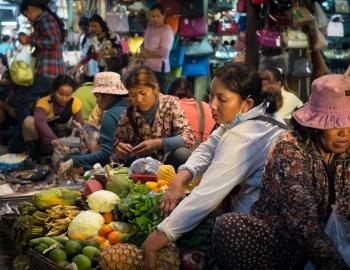OUTLOOK: Indonesia Special Edition
OUTLOOK: Indonesia Special Edition
Protecting the environment is not easy in a vast country like Indonesia: it is the world’s fourth most populous country and stretches over 17,000 islands and three time zones. It has more than 70,000 villages, administered through more than 6,500 sub-districts, 500 districts and municipalities, and 35 provinces. Indonesia faces numerous environmental problems but has also taken an ambitious attitude to tackling climate change.
In fact, its ambitions have attracted international attention: it has a greenhouse gas emissions reductions target of 26%–41% (the higher figure is dependent on international action) by 2020, against business-as-usual, and a high-profile moratorium on logging licenses in primary forests and those on peatlands. A national climate change mitigation programme is in place. Indonesia is one of the first countries in Asia, along with Bangladesh, to establish a national fund to receive climate finance from overseas: the Indonesia Climate Change Trust Fund.
CDKN is convening decision-makers to test and explore the concept of climate-compatible development, particularly in the energy sector and at province, district and city level. We are extending technical assistance, knowledge and brokering support for a variety of climate change initiatives in Indonesia.
This edition of Climate and Development Outlook: Stories of change from CDKN - Indonesia Special Edition takes a tour of CDKN's programme throughout this diverse country. It features articles on:
- How Indonesia is approaching climate change mitigation and how the government's considering financing climate compatible development - including through 'public-private-people' partnerships;
- CDKN-supported work to provide a framework for developing Nationally Appropriate Mitigation Actions in the energy sector - and development of a renewable energy NAMA in West Nusa Tenggara province; and
- How CDKN-backed research into the causes of deforestation on the borders of one of its famous national parks could unlock new insights on how to conserve forest and improve food, water and energy security.
Since this Outlook was released, Indonesia has submitted its Intended Nationally Determined Contribution to the UNFCCC.
Image: Fisherman, Lombok, West Nusa Tenggara, Indonesia - courtesy Fadil Basymedeh.


